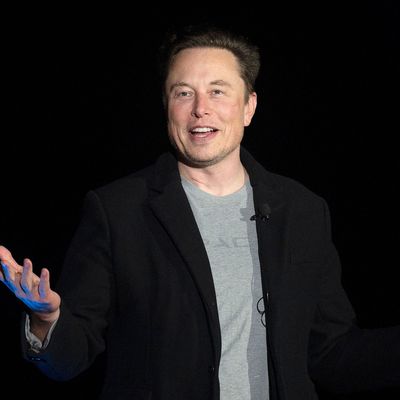
A few self-inflicted outrage cycles back, Elon Musk got into big trouble for what appeared to be a dumb little joke. In 2018, the Tesla CEO tweeted that he had “funding secured” to take the company private at $420 a share — a marijuana reference he picked in part because he thought his girlfriend, the musician Grimes, would “find it funny.” The Securities and Exchange Commission didn’t find it amusing and charged him with securities fraud for misleading investors.
Musk eventually settled with the SEC but is still dealing with the tweet five years later in a class-action lawsuit brought by shareholders seeking unspecified damages and alleging that he misled investors and caused financial losses. On Monday, as he testified in federal court in San Francisco, he tried to explain the $420 comment. He said it was a “coincidence” that the number was both a well-known weed reference and a 20 percent premium of Tesla’s shares in the summer of 2018. He said he did not do it “because his girlfriend found it funny” — directly contradicting his statement to the SEC in 2018 that he did it because he thought it would make Grimes laugh.
Musk also provided more information about the supposed funding for the plan. On the stand, he said Saudi Arabia’s sovereign wealth fund “unequivocally wanted to take Tesla private” in 2018 when it already owned a 5 percent stake in the company. Musk claimed that he had been told the Financial Times was on the story of the sovereign wealth fund amassing Tesla shares and that he wanted to control the narrative around it. He said FT’s interest in the matter was “the driving factor behind the tweet,” but Saudi fund managers declined to back him up, with their attorneys refusing requests for fund employees to testify in such a “legally deficient” lawsuit. In his defense, Musk said on Friday, the first day of the trial, that his tweets don’t actually manipulate Tesla’s stock price as some shareholders claim, noting that his tweet in May 2020 calling his company’s stock price “too high” resulted only in a short-term value drop.
Throughout the trial, Musk and his attorneys have been trying to argue that his “split-second” tweet did not indicate that the deal had been finalized. A jury will consider that argument when the trial wraps up in early February.






























